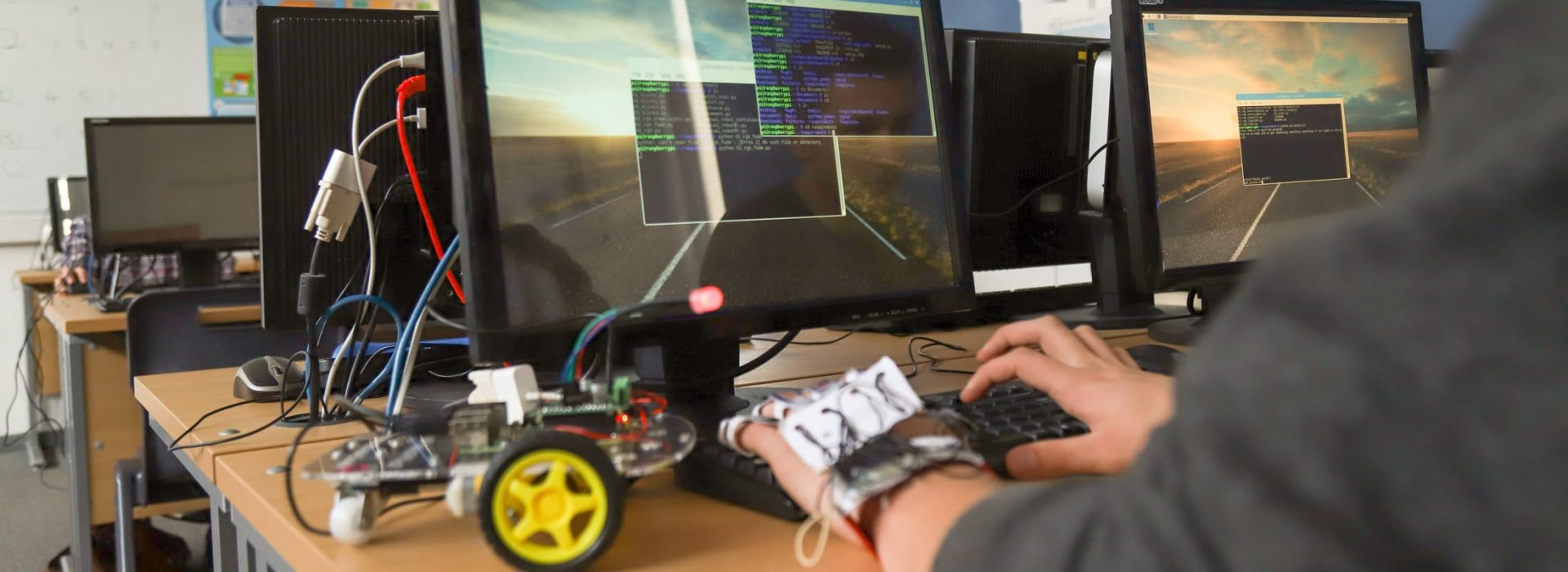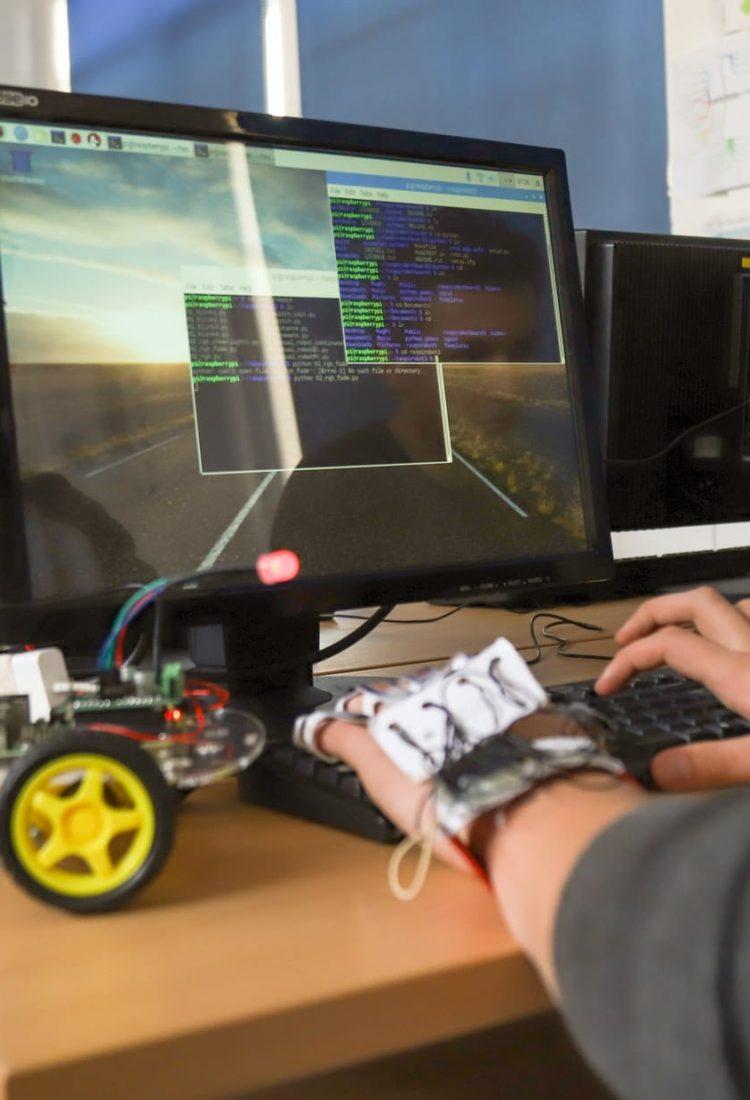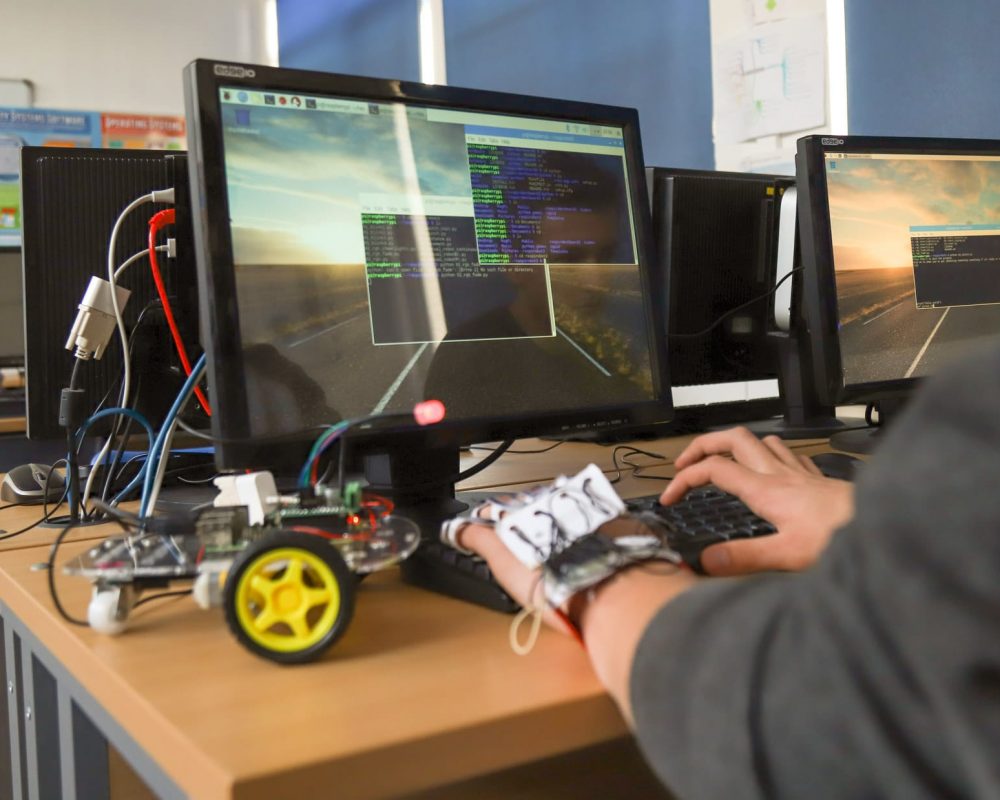Head of Department – Mrs Crick
Other members of staff:
- Mr J Edmunds
Entry Requirements
Mathematics – Grade 6 Computer Science – Grade 6 and/or programming experience to at least GCSE standard.
Examination Board: AQA
Introduction/General Advice and Requirements
Computer Science is a practical subject where students can apply the academic principles learnt in the classroom to real-world systems. Students will learn how to use the computer as a tool to make our world function as it does today: from making games and mobile applications to building networks and robots. Computer Science is an intensely creative subject that combines invention and excitement. Allowing for observations of the natural world through a digital prism. The qualification centres on computational thinking, developing the highly transferrable skills of problem-solving and systems analysis.
These are the concepts that lie at the heart of Computer Science. It will be a most valuable preparation for students wishing to enter the ever-growing Knowledge Economy. Graduates of the subject are equipped with life-long skills that can be applied to a whole variety of jobs: from management to consulting, from programming to information systems administration, from IT companies to any company, large or small.
Course Content & Assessment
Assessment of A Level
Paper 1 – 40%
This on-screen exam (duration 2h 30min) tests the student’s ability to program, as well as their theoretical knowledge of Computer Science from subject content 1-3 and 13 below.
Paper 2 40%
This paper-based exam (duration 2h 30min) tests the student’s ability to answer questions relating to the subject content 3-12 below.
Project 20%
This is real-world programming task testing the student’s ability to use the knowledge and skills gained through the course to solve real-world problems in a systematic manner.
Subject Content of A Level
1. Fundamentals of Programming
2. Fundamentals of Data Structures
3. Fundamentals of Algorithms
4. Theory of Computation
5. Fundamentals of Data Representation
6. Fundamentals of Computer Systems
7. Fundamentals of Computer Organisation and Architecture
8. Consequences of Uses of Computing
9. Fundamentals of Communication and Networking
10. Fundamentals of Databases
11. Big Data
12. Fundamentals of Functional Programming
13. Systematic Approach to Problem Solving
14. Non-Exam assessment – the Computing Practical Project
Student quote:
“The subject is both logical and creative, helping me develop my problem-solving skills.” – Mark Davies
“We learn about every day technology – enabling us to become more aware of how our digital world operates; helping us to make better decisions, ranging from choosing the latest mobile phone to creating our own software.” – Connor McDade


